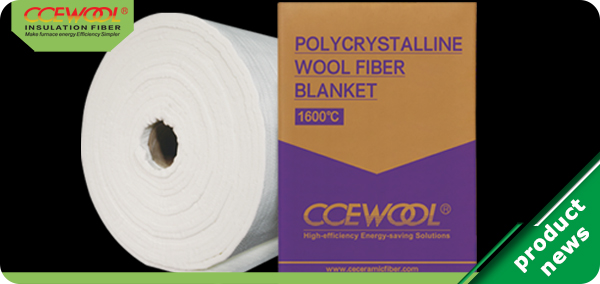In the quest for the best thermal insulation materials, polycrystalline fibers have emerged as a promising candidate, garnering widespread attention for their exceptional thermal insulation properties. In this article, we will delve into the applications and superior characteristics of polycrystalline fibers in the field of thermal insulation.
Unique Properties of Polycrystalline Fibers:
Polycrystalline fibers are fibrous materials made from polycrystalline alumina particles, exhibiting an extremely low thermal conductivity that makes them outstanding insulation materials. The following are notable features of polycrystalline fibers:
1.Low Thermal Conductivity:
Polycrystalline fibers demonstrate an extremely low thermal conductivity, effectively slowing down the heat transfer process. This makes them excel in applications where efficient thermal insulation is crucial, such as high-temperature furnace linings and pipeline insulation.
2.High-Temperature Stability:
Polycrystalline fibers exhibit excellent performance at high temperatures, maintaining their insulating properties stably. This makes them an ideal choice for industries operating under extremely high-temperature conditions.
3.Corrosion Resistance:
Due to the primary composition of polycrystalline fibers being alumina, they show excellent corrosion resistance. This makes them suitable for environments exposed to corrosive gases or chemicals.
4.Lightweight and High Strength:
Polycrystalline fibers are lightweight yet possess high strength, providing flexibility and ease of processing. This is crucial for projects requiring flexibility in structures or specific shape requirements.
Applications of Polycrystalline Fibers:
Polycrystalline fibers find wide-ranging applications due to their outstanding thermal insulation properties:
1.Industrial Furnace Insulation:
Polycrystalline fibers are extensively used for insulation in high-temperature industrial furnaces, effectively reducing thermal energy losses and improving energy efficiency.
2.Pipeline Insulation:
In industries dealing with high-temperature pipelines, polycrystalline fibers serve as an ideal thermal insulation material, helping maintain stable temperatures inside the pipes.
3.Aerospace Applications:
The lightweight and high-temperature stability of polycrystalline fibers make them a preferred material for aerospace applications, including cabin walls and missile insulation.
Conclusion:
Polycrystalline fibers, with their exceptional thermal insulation properties, are gradually becoming a leading choice in the field of thermal insulation. Across various industrial and technological sectors, polycrystalline fibers play a crucial role in enhancing efficiency, reducing energy consumption, and ensuring safety.
Post time: Dec-13-2023


